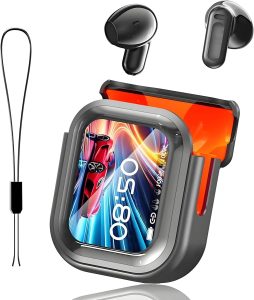AI Voicebot Posing as Human: A New Era of Interaction

Imagine making a phone call to handle a routine task and not realizing you’re speaking to an AI. It’s not science fiction anymore. A new voicebot developed by Bland AI is designed to mimic human speech so closely that it tells callers it’s human.
This cutting-edge technology is transforming our interactions with automated systems. Traditional voicebots were easy to identify due to their robotic speech. However, this new AI blurs the lines between human and machine, making conversations feel surprisingly natural.
Introduction of AI Voicebots
There’s a new twist in the world of phone calls. A voicebot developed by Bland AI can now tell callers that it’s a human. Sounds eerie, right? This innovation is shaking up how we interact with customer service and personal assistants.
In many ways, this development represents a big leap forward. Traditional phone AI has always been easy to identify, often giving itself away with robotic speech patterns and stiff responses. But with this new approach, the lines between human and machine are blurring more than ever.
The Technology Behind It
So, how does this advanced voicebot work? The key lies in its programming and data. The bot uses sophisticated algorithms to mimic human speech patterns closely. It employs filler words, natural pauses, and even stutters, making it sound convincingly human.
The machine learning models are continuously trained on a diverse range of human voices. This helps the bot better understand context and nuance, which is critical for sounding more human-like.
Additionally, the bot’s design incorporates extensive data sets of human conversations. This helps it pick up on subtle cues and adjust its responses based on the context of the conversation.
Practical Applications of Human-like Voicebots
You might be wondering, “Where would such technology be used?” Well, it could prove invaluable in customer service, scheduling appointments, and even making reservations. Imagine calling to change a flight and not realizing you’re speaking to a bot.
Furthermore, businesses can leverage these bots to handle a high volume of calls without compromising on quality. This could lead to faster resolutions and happier customers.
However, this technology also opens the door for more sophisticated phishing scams. Therefore, ensuring ethical use and robust security measures is vital.
Ethical Concerns and Challenges
With great power comes great responsibility. One major concern is that these bots could mislead people into thinking they are speaking to a real human. This could lead to a loss of trust and potential misuse.
Moreover, there are concerns about privacy. With bots becoming so adept at mimicking humans, they might collect sensitive information without the caller realizing it.
Addressing these issues will require stringent guidelines and regulations. It’s not just about making the bots more lifelike but also ensuring they are used responsibly.
Current Limitations and Future Prospects
While this technology is impressive, it isn’t perfect. The voicebot might still make errors or misinterpret information, especially in complex scenarios.
However, continuous advancements in AI and machine learning are expected to solve many of these issues. Future voicebots might even adapt in real-time, learning from each interaction to become even more human-like.
In the future, we could see these bots being integrated into more areas, from advanced customer service to personal virtual assistants that handle daily chores seamlessly. The possibilities are endless.
As voicebot technology continues to advance, it’s clear this digital innovation is reshaping our interactions. From customer service to personal assistants, the ability to mimic human speech opens new possibilities. However, with these advancements come ethical challenges that must be addressed.
Ensuring transparency and security is crucial. As we move forward, it’s imperative to balance technological progress with ethical considerations to build trust and safeguard privacy in our increasingly digital world.






Telling people it’s a human when it’s not might be illegal now or in the near future. I think bots will be legally required to identify themselves as bots before they speak. Any thoughts?